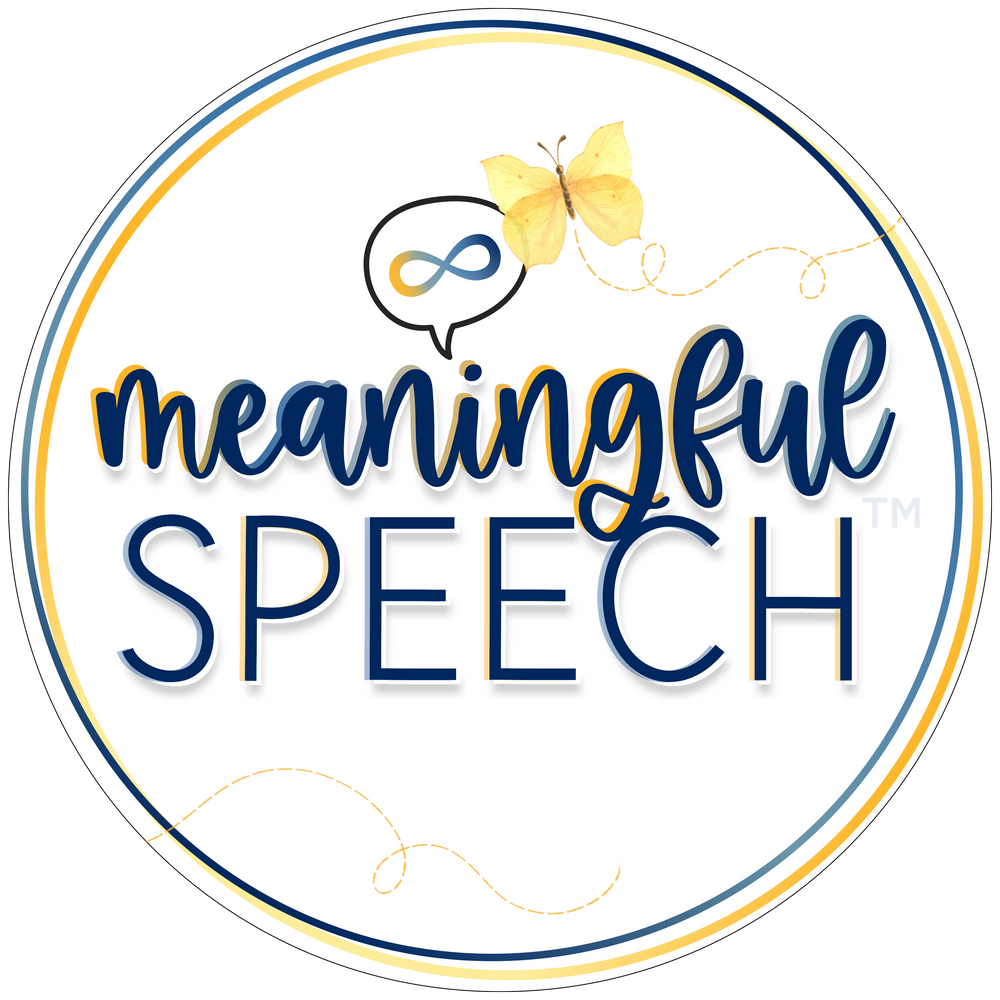Neurodiversity-Affirming Practices & Providers: Information for Parents & Professionals
Jul 25, 2024
If you’re a speech-language pathologist, there are changes you can make to the way you practice or how you run your practice as a private practice owner to become more neurodiversity-affirming. You may even consider starting your own neurodiversity-affirming practice. If you’re a parent, there are questions you can ask when seeking services to ensure a clinic or provider is neurodiversity-affirming.
How to become a more Neurodiversity-Affirming Provider/Practice
- Consider changing your intake forms to focus on strengths and each child’s interests. No more focusing on milestones, especially for gestalt language processors. Ask questions about a child’s special interests, strengths, play preferences, and family life/goals. We have created neurodiversity-affirming Gestalt Language Processing Intake forms. The forms can be printed, or downloaded digitally. Our GLP Intake forms include (all fillable):
- Instructions, tips, and video introduction
- GLP Parent Questionnaire & Child Intake Form(10 pages)
- Clinician Checklist for GLP Parent Interview (2 pages)
- GLP IEP Parent Questionnaire (4 pages)
- Gestalt Dictionary for all three sets of forms + instructions
- Language Sample Recording form + instructions for parent use (now calculates percentages for each stage when filled in digitally!)
- Be open to admitting that you don’t know something. Invest time into unlearning harmful practices and learning about practices that are neurodiversity-affirming. Listen to neurodivergent voices and experiences. Consider taking continuing education courses, and receiving clinical mentorship.
- Consider changing the way you assess children. Only use standardized assessments if absolutely necessary. Instead, focus on language samples, parent interviews, home video analysis and play observations.
- Ensure that evaluations are 100% child-led. This is possible with all ages. Play and language development often mirror each other. As play moves and evolves language follows.
- Work closely with occupational therapists when possible and make sure you and all therapists (if you’re a practice owner) understand sensory needs. Most neurodivergent children need sensory support. Language movement often only happens when we address the whole child and the whole body. Understanding sensory needs and how to meet them during your sessions is key to providing quality services for neurodivergent individuals.
- Include parents/caregivers as much as possible. Parents are the experts on their own children. Don’t keep them in the dark. What happens at home and what is understood, taught, and modeled by parents will make the biggest impact on the child.
- Consider switching settings, workplaces, or starting your own neurodiversity-affirming private practice. Unfortunately, not all settings or workplaces will be neurodiversity-affirming and therefore, it may limit your ability to be neurodiversity-affirming in your own practices if they're unwilling to change for a variety of reasons (e.g. some workplaces require clinicians to write certain goals for neurodivergent students that push neurotypical standards/norms). If you're feeling like this is the case for you, you may be considering changing workplaces/settings, or even starting your own practice that is neurodiversity-affirming and allows you the autonomy to choose how you practice, what clients you support, etc. If this is something you're considering, join us on July 31, 2024 at 5pm PT/6pm MT/7pm CT/8pm ET for a 1-hour webinar on Starting a Niche Private Practice. Meaningful Speech team members Jessica Teixeira (@jesstheslp) and Alexandria Zachos will share their own SLP niche private practice stories, guide you on how to get started and answer all your questions! If you can’t join live, no worries! A recording will be available to you for a year and access will be granted on 8/1/24. You can sign up for the webinar HERE. Also, if there is anything you’d like to see covered during the webinar, please fill out this form prior to the webinar.
BONUS (if purchased before 7/31/24): Speech-language pathologist and marketing/website guru Hannah Boeck from Cued Creative has a 15-minute video for you on how niching down can have a positive impact on your digital marketing.
What questions can I ask providers/clinics as a parent/caregiver when seeing services to ensure they’re neurodiversity-affirming?
- What type of assessments do you/your clinic use to determine goals? Yes, standardized assessments may be needed for qualification or insurance purposes, but you will want to choose a provider/practice that doesn’t rely on standardized assessment results. Especially if your child is a gestalt language processor. Standardized testing is likely not giving you a full picture of your child’s comprehension skills. Until a child is self-generating language (using original, flexible language) in stage 4+, we cannot rely on standardized tests. Instead, providers should focus on informal measures such as language samples, play observations, parent interviews, and home videos.
- What does a typical therapy session look like? Sessions should be child-led, play-based sessions. This means, providers follow your child’s lead, and incorporate their goals naturally into their natural play so that sessions are meaningful and intrinsically motivating for your child. Sessions should not be based on adult-directed plans or compliance based methods.
- How does your staff stay up-to-date and keep up with professional development? Professional development is required for speech-language pathologists. Find out what professional development the provider/practice is investing in. Are they open to admitting that they don’t know something, but willing to learn more when provided with new information or practices?
- What is the parent’s role in services and how do you educate parents? Parents should be encouraged to participate in sessions if possible. They should be provided with information and coaching on strategies to best support the child outside of therapy sessions. You are the expert of your child.
Want to learn more about gestalt language processing, child-led therapy and neurodiversity-affirming practices?
-
There are many free podcasts, webinars and articles to get you started. A comprehensive list of resources can also be found on our website.
-
Consider taking the Meaningful Speech course to learn more about how your child or client processes language, how you can help move them from echolalia to self-generated (original flexible) language, child-led therapy, and neurodiversity-affirming practices.
-
Consider joining the waitlist for our new AAC + Gestalt Language Processing course that will be released in February of 2023! It will teach you how to identify, evaluate and support gestalt language processors who use AAC.
-
Look for a speech-language pathologist (SLP) who "gets it" and can help you in supporting your child's language development. Check out our registry. for SLPs who understand gestalt language processing and child-led therapy.
- Want to learn more about starting a niche private practice? Join our webinar on Wednesday July 31st at 5pm PT/8pm ET or watch the recording if you can't make it live by signing up HERE.
